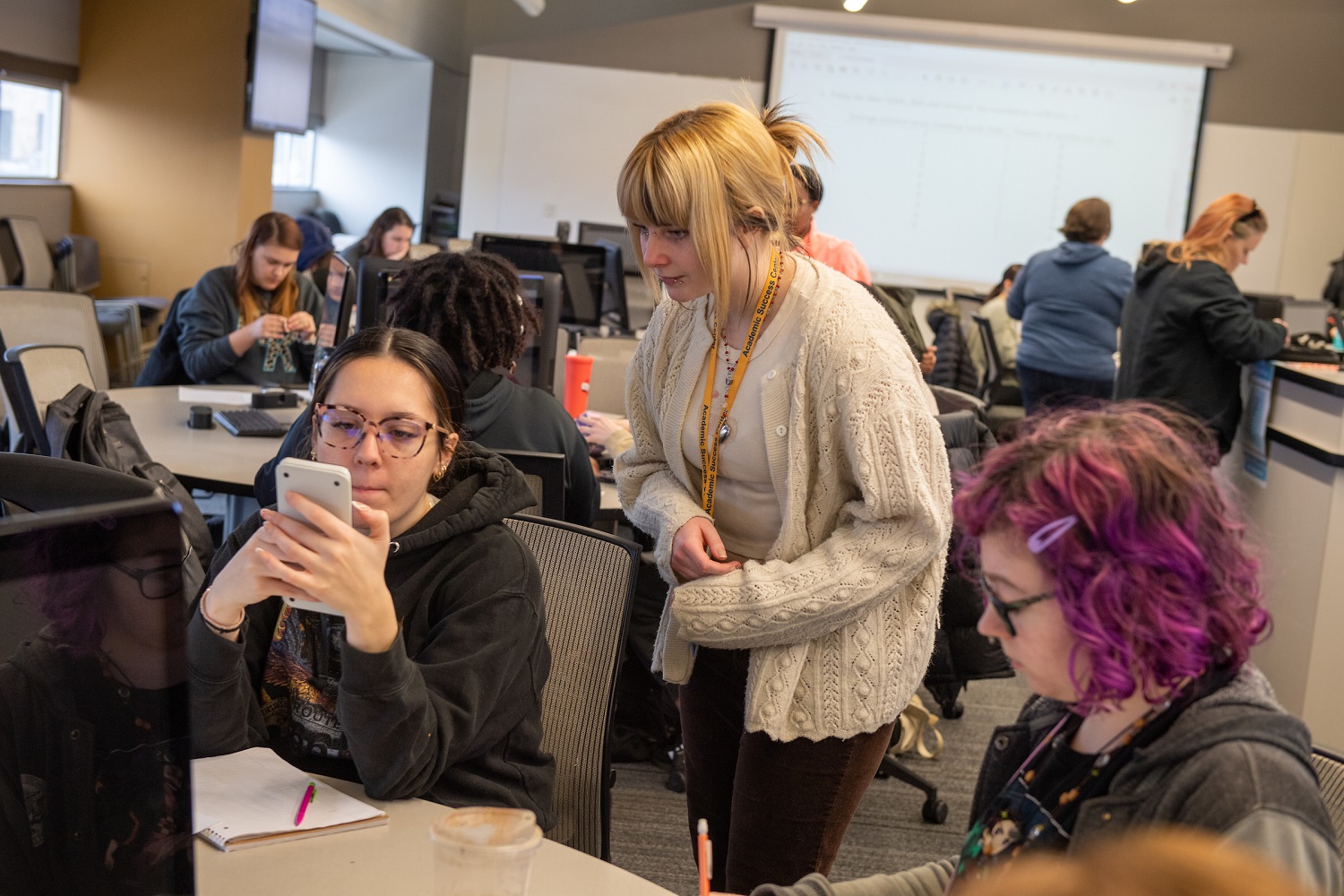Being a first-generation student is difficult, especially when your family does not support your decision to go to college or you don’t have someone to give you advice from a college point of view. Even if you feel as if no one truly understands what you’re going through, being a first-generation student has a lot of different hurdles to overcome.
Like many «ýƒÍ…¨µº∫Ω students, Mandy Munro-Stasiuk, Ph.D., dean of the College of Arts and Sciences, was a first-generation college student and has some advice for those who are struggling to feel a sense of belonging. She recently sat down for an interview with Destiny Torres, our student writing intern who is also a first-generation student (in the College of Communication and Information).

“Being a first-generation student, I had absolutely no idea what to expect going to university. It was a completely foreign concept to me,” Munro-Stasiuk, who is originally from Perth, Scotland, said. “It was not something that anybody in our family thought was anything that any of us would do. It was just outside the realm of our sort of social class, if you want to put it that way.”
Like some, Munro-Stasiuk grew up in a low-income household that was not always supportive of her going to college. Her dad thought going to college was ‘posh’.
“My dad was not happy at all,” Munro-Stasiuk said. “To him it was fancy and ‘why would I want to do that fancy thing?’. My mum at the time was very quiet about it, but when my dad passed away, she was like ‘if you want to go, go’. She wasn’t familiar with what college was, but she knew that what I was doing was important.”
Munro-Stasiuk said she had no idea what to expect going into college at The University of Glasgow in Scotland.
“When I first got there, I didn’t know what things were,” Munro-Stasiuk said. “I knew what things were called, but it was a vocabulary I wasn't familiar with. I know it may be hard to believe, but I’m desperately shy. But I really forced myself to ask questions.”
She looked towards her peers to help her with the new environment, as a lot of them had more experience and knowledge than she did.
“My biggest challenge was probably just getting there to start off with and going through that door,” Munro-Stasiuk said. “But once I was through that door, it was a bit easier. It’s interesting because I’m a constant optimist in pretty much everything I do. When I went to college, it was like this giant opportunity, where a door opened to me, and it was just like a life changing event almost from the day that I arrived on campus.”
To read more about Munro-Stasiuk's educational journey, visit: /cas/transformative-power-education
Ask questions, seek help, and be confident
She said the biggest piece of advice she could give first generation students is to ask questions.
“No matter how shy you are, or introverted you are, really try and go out of your way to ask questions if you’re struggling with something.” Munro-Stasiuk said. “It could be a peer; it could be any of the advisors, a faculty member, or any of the individuals that oversee the various programs that we have, like the first-gen program, McNair Scholars. Nobody's going to think you're stupid by asking those questions. And so, I think we just have to get into that mindset and kind of get over that hurdle and just ask.”
Munro-Stasiuk understands that it’s a big step for any first-generation college student and said that there are many resources for students to go to if they need help.
“We’ve got our psychological services, counseling, and services in the DeWeese Health Center,” Munro-Stasiuk said. “I would use the services that are here for you to use.”
Munro-Stasiuk also recommends freshmen to go to their Flashes 101 instructors or a peer success mentor for subjects such as managing time or anxieties about classes.
“It’s cool, to be really honest, that Kent embraces them (first-generation students) as much as we do,” Munro-Stasiuk said. “We really live the core values and feel them. I think that’s really special because you don’t get that in other places. Some other universities say certain things, but they don’t necessarily live by those values. And we really, truly do.”
The last bit of advice that Munro-Stasiuk has for first-generation college students is to be confident.
“Be as confident as you can,” Munro-Stasiuk said. “Seek out the resources that you can, take advantage of every opportunity that’s laid out in front of you and take time for yourself. It’s not all about work all the time. Take the time to yourself and do the other things that are important to you. It’ll help your brain rest and that will help with your mental health as well.”
# # #

